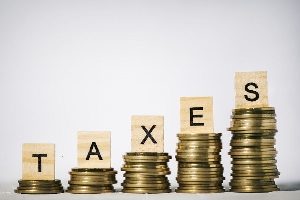- Home - News
- TWI News | TV
- Polls
- Year In Review
- News Archive
- Crime & Punishment
- Politics
- Regional
- Editorial
- Health
- Ghanaians Abroad
- Tabloid
- Africa
- Religion
- Election 2020
- Coronavirus
- News Videos | TV
- Photo Archives
- News Headlines
- Press Release
Opinions of Monday, 6 June 2005
Columnist: Fredua-Kwarteng, Y.
Playing Politics with Pre-schooling
Ghana has one year public funded pre-school institutions that are part of its primary schooling system. However, in most cities private business people and churches have also established pre-schools for children of different ages. These pre-schools are usually called day nurseries or kindergarten. Usually in the private pre-schools, the teachers may not have any formal training in early child education but a good number of them have much experience in teaching and caring for infants and toddlers. They may have acquired this experience from either baby-sitting their own children, those of their relatives or neighbours. Some of the more reputable private pre-schools have their own well-structured curricula to guide the teachers, many of whom have some form of post-secondary education. By contrast, most of the pre-school teachers in the public system are formally trained but most too have no curricular guide.
The importance of pre-schooling is now recognized all over the world as an important socialization preparation for children before they enter the formal schooling system. Through play and music children in pre-schools learn to cultivate love for reading, acquire basic social skills, and learn to recognize the alphabet, numerals, different geometric shapes and colours. Nevertheless, some critical educators are opposed to pre-schooling on the grounds that it is unnecessary indoctrination; particularly in a society where schooling is regarded as a means of transmission and inculcation of foreign values in innocent children. Some of these educators also regard pre-schooling as a form of institutionalization. They argue that children are institutionalized right from birth in hospitals and this has negative psychological effects on their cultural and emotional development. Thus, these educators advocate that children should spend time with their families in the early formative years.
Despite the valid arguments of both sides of the debate, pre-schooling fulfils significant function and role in children social and intellectual development, providing it has a clear mission, well-trained teachers, and curriculum. It is for this reason that the government requested the Education Reform Review Committee (ERRC) to finds ways of integrating pre-schooling into the formal Ghanaian education system. In its wisdom, the ERRC recommended two years of kindergarten (K1 and K 2) education starting from age four. The government in its White Paper adopted the Committee?s recommendation of free two years kindergarten education, increasing Free, Compulsory, and Universal Basic Education (FCUBE) from 9 years to 11 years. Interestingly, the government stated in its White Paper that ?the modalities for the realisation of this objective by the year 2015 are to be worked out, including close cooperation with private sector providers of kindergarten education.?
First, the government is deceiving Ghanaians by saying that the existing one year kindergarten education is not integrated into the formal schooling system. What does the government mean by integration? Is the existing one year kindergarten education not fully an integral part of our schooling system? It is indeed one thing to say that our kindergarten system needs reform or restructuring and another thing to say that it needs to be integrated. Truly, our kindergarten education is a Cinderella of our formal system, in that the teachers are not trained in early childhood education, they have no curricula to guide them and the system is severely underresourced. Can you imagine children five years old carrying their chairs in and out of school? Second, I wonder why the government needs ten years before it could work out plans for provision of two years kindergarten schooling for Ghanaian children. What is the justification for a two-year kindergarten education, considering that the government is incapable of expanding even one year kindergarten education to every part of Ghana? What Ghanaians need is a well-organized and well-resourced one year kindergarten education that is accessible to every Ghanaian child aged five. Third, it is highly unlikely that the government of NPP would be in power till 20015 to implement its two-year kindergarten schooling program. If the NPP is serious about pre-school education, it does not need that length of time to put that vision into practice.
As well, our suspicion that the government is playing politics with pre-schooling is its lack of policy on the issue. The government does not need 10 years to draw a policy on pre-schooling, since there is an existing model in the public and private system. In fact, the government has three policy options to choose from in its promise to provide two-years of free, compulsory pre-schooling for Ghanaian children. One is direct provision of the service, by integrating and placing it with the management of a public primary school. In this case, the government provides the necessary resources through its agency, Ghana Education Service, to keep the school running. The other policy option is to contract out the service to private providers. The government pays the private providers based on enrolment and other criteria that may be negotiated with those providers. The government may combine the two options, by operating direct pre-schools in rural areas and small towns and contract out the services in metropolitan city such as Accra where public primary school system has almost collapsed and primary international/preparatory schools have taken their places.
Furthermore, one of the cardinal principles we have learned in administration is that any proposed program must identify its sources of financing or funding. Practically, the funding must be equal to or greater than the estimated costs of the program. How is the government planning to fund its proposed pre-schools? This is what the government has to say: ? The government will provide resources to support the expansion of kindergarten facilities by District Assemblies, Non-Governmental Organizations (NGO), churches, communities and others?(p.8). The crucial question is not what the government plans to provide but how it is going to provide the resources needed for two-years pre-school in order to make it accessible to all Ghanaian children, irrespective of parental socio-economic status, ethnicity, religion, or geographic location.
In fact, our financial realities in Ghana are staring our faces. More than half of our total national budget comes from foreign donations, gifts, loans, and grants. Presently, education takes a huge chunk of our national budget, averaging approximately 68 percent. This expenditure level is only enough to provide minimum resources for our schools. Schools in most rural towns barely have enough textbooks, chalkboards, furniture, and roofed-classrooms. A two-year free, compulsory kindergarten education would certainly add a considerable strain to the existing public allocated budget for education. The cost of providing free, compulsory two-year kindergarten education cannot be down-loaded onto the District Assemblies, which are cash strapped in their efforts to reduce poverty and undertake development projects in their respective districts. Most of these districts have virtually no sources of revenue, apart from the little that accrues to them from central government transfers, market tolls, property taxes, business licence issuance and renewal, birth, death and marriage registration fees, and land-poll.
Land-poll tax as we know it was instituted by the British colonial administration as a means of generating revenue mainly from those whose income were not officially identifiable. Male adults were made to pay almost twice as female adults, based on the premise that males had more strength to engage in physical labour than females. The uneducated population was subjected to this tax than the educated population. Tax collectors with no system of accountability usually target these people during market days in district areas because of the large number of people who congregate the markets. People were never educated why paying the tax was necessary, nor were they informed how the land-poll tax money was utilized. And, not surprisingly some people resisted paying the tax in the colonial days as they do in contemporary times. However, after independence from the British, poll-tax has continued to retain its colonial characteristics, and yet it is considered a source of revenue at the local level. Though there are equally problems with collection and enforcement of the other revenue-generating instruments, the central point we want to make in connection with land poll-tax is that the revenue from the tax is not more than humming bird feed.
Consequently, the failure to identify the necessary sources of funding for the proposed two-year kindergarten education casts doubt on the intention of the government. The current government has individuals who were educated and worked in the affluent Western world and they might have learnt that Western governments even have financial problems providing a two-year full-time pre-school education. For example, most Canadian provinces have free, compulsory part-time pre-school education programs. In the province of Ontario, for example, both junior and senior kindergarten are run on a part-time basis either in the morning or afternoon. How can the government of an impoverished country such as Ghana convince us that it can provide a two-year free kindergarten? It costs money to provide free pre-schooling and thus far the government has demonstrated that it doesn?t have the money to provide that education. This is why we strongly believe that the government of NPP is merely playing politics with pre-schooling.
Note: Readers interested to read the Government White Paper on the Report of the Education Reform Committee can access it from http://www.ghana.gov.gh/dexadd/white











